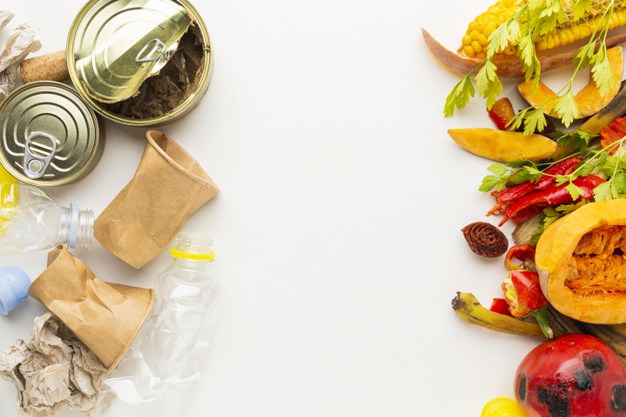- You have no items in your shopping cart
- Continue Shopping



1) Only buy what you need
It’s only a bargain if we can use the food in time! Buy according to your requirement; or in food waste terms, it’s wise not to buy more than needed.
Simple ‘grandma’s’ tricks can help us stay focused when shopping for food include.
- Prepare a meal plan for the week.
- Use a shopping list, noting the amounts required.
- Factor in potential eating out / food ordering occasions.
2) Use what you have
Not-wasting is not that complicated!
- Check what’s in the fridge and cupboards regularly and use up foods nearing their expiry dates.
- Combine any vegetables left into a ‘clean-out-the-fridge’ pot of pasta, soup, omelette, or stir fry. We get to enjoy a new recipe and avoid throwing out good food.
- Freeze food before its date. Frozen fruits can make a nice addition to smoothies!
3) Avoid serving too much
Here are some simple practices that help:
- Serve small portions and come back for seconds, rather than scraping excess food from our plates into the bin.
- Use leftovers for lunch the next day.
- Freeze for later. For tastiest results, frozen leftovers should be used within three months
- Not enough leftovers for a whole meal? Mix and match from different meals, add some salad or bread, and a feast appears before us!
4) Share extra food with others
If the food is still safe, our nature as social beings can play a part in the solution.
- Ask around, friends or colleagues could make use of what we won’t.
- Check if there are food banks around that accept donations and distribute them to people in need.
5) Re purpose waste where possible
Try to repurpose food scraps before they make it to the compost bin. Broccoli stems can be chopped and cooked just as well as the florets, and other scraps can be transformed into homemade stock!
For what can’t be saved composting is a natural process where microorganisms biodegrade food waste, turning it into a dark, earthy, nutrient-rich material that promotes healthy soil.
- Community composting and separate food waste bins are a step in the right direction.
- Or we can feed our own garden! Compost is an affordable organic alternative to purchased fertilizers, but it’s best to stick to plant-based foods (as meat and animal products could lead to undesired odors and pest visitors).
Adapted from: eufic.org

